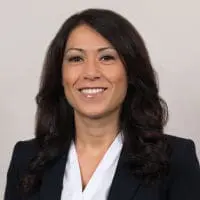Publication
Notice 2020-39: IRS and Treasury Ease Opportunity Zone Incentive Requirements in Response to the COVID-19 Crisis
By Marc L. Schultz and Soheila Shahidi
On June 4, 2020, Treasury and the Internal Revenue Service issued Notice 2020-39 (the Notice) modifying Notice 2020-23 and providing relief under Section 7508A of the Internal Revenue Code (Code).
Under Code Section 7508A, the Secretary of the Treasury can postpone the time for performing certain acts for up to one year for taxpayers who are affected by a Federally declared disaster. On March 13, 2020, the President issued an emergency declaration under the Stafford Act instructing the Secretary of Treasury to provide relief from tax deadlines because of the COVID-19 crisis under Code Section 7508A. Subsequently, all 50 states, the District of Columbia, and five territories were issued major disaster declarations, establishing the existence of major disasters beginning on January 20, 2020 in each one of these jurisdictions, which includes every Qualified Opportunity Zone.
This Notice provides the extensions and postponements discussed below with respect to the Opportunity Zone incentive (the OZ Incentive).
INVESTORS – EXTENSION OF 180-DAY INVESTMENT PERIOD
Under the OZ Incentive, a taxpayer can elect to defer some or all of the taxpayer’s eligible gain if the taxpayer invests such gain to acquire a qualifying investment in a qualified opportunity fund (a QOF) during the 180-day period beginning on the date the gain would be recognized for federal income tax purposes (i.e. the date of the taxable sale or exchange). For this purpose, the eligible gain must result from the sale or exchange of property with an unrelated person for federal income tax purposes.
Taxpayers who are equity holders of pass-through entities are effectively provided three different dates for commencement of their 180-day investment period when such pass-through entity generates an eligible gain allocated to such taxpayers: (i) the due date of the federal income tax return (without extensions) for the pass-through entity for the taxable year in which the taxable sale or exchange occurs; (ii) the last day of the pass-through entity’s taxable year in which the equity holder’s distributive share of the eligible gain is taken into account; or (iii) the date of the taxable sale by the pass-through entity. The following example illustrates the three commencement dates for the 180-day investment period:
A calendar year pass-through entity generated an eligible gain in 2019 that was allocated to the taxpayer. The taxpayer could use March 15, 2020, as the latest date to commence the 180-day investment period. The taxpayer could also have used December 31, 2019, or the date of the taxable sale in 2019 by the pass-through entity to commence the 180-day investment period. Note that this assumes that the pass-through entity did not invest directly in the QOF with respect to such gain.
Notice 2020-39:
The Notice provides that if a taxpayer’s 180-day investment period has ended or will end between April 1, 2020, and before December 31, 2020, then the last date for the taxpayer to make an investment in a QOF is extended to December 31, 2020. The following are two examples where this deadline would be extended to December 31, 2020 with respect to an eligible gain created in 2019:
- Taxpayer directly sells an asset on or after October 4, 2019, generating an eligible gain; and
- Taxpayer is allocated an eligible gain on December 31, 2019, from a calendar year pass-through entity that sold an asset and generated the eligible gain in 2019.
QOFs – MORE TIME FOR THE QOF TO HOLD CASH BEFORE INVESTING IN A QOZB
One of the requirements of a QOF is to hold at least 90 percent of its assets in qualified opportunity zone property (OZP). The 90 percent requirement is determined by taking the average of the percentage of OZP held by the QOF, as measured on the last day of the first six-month period of the taxable year of the QOF, and on the last day of the taxable year of the QOF. Failure to satisfy the 90 percent requirement can result in a penalty on the QOF for each month of such failure. However, this penalty will not apply where it is established that such failure is due to reasonable cause.
Cash is not considered to be OZP. However, an equity interest (satisfying certain requirements) in a qualified opportunity zone business (QOZB) that is acquired in an original issuance for cash by the QOF would be considered to be OZP. A QOZB must be a domestic entity which is treated as a corporation or partnership for federal income tax purposes and satisfy a number of requirements. Under the 90 percent requirement described above, QOFs have a limited period to convert any contributed cash from taxpayers into qualifying equity in a QOZB. For example, a newly formed calendar year QOF that received investments from taxpayers during December 2019 is required to contribute at least 90 percent of such cash into equity in a QOZB on or before its June 30, 2020 testing date in order to avoid a penalty.
Notice 2020-39:
The Notice provides that, in the case of any QOF whose 90 percent semi-annual testing dates fall between April 1, 2020 and December 31, 2020, any failures by the QOF to satisfy the related 90 percent requirement shall be treated as due to reasonable cause and shall be disregarded. This means that a calendar year QOF that failed its June 30, 2020, and December 31, 2020 testing dates as a result of not converting enough invested cash received in December 2019 to equity in a QOZB would not be subject to a penalty due to such failure. This change is a significant development since many taxpayers invested cash into QOFs in December 2019 in order to obtain the 15 percent partial exclusion with respect to their qualifying investment.
TOLLING OF THE 30-MONTH SUBSTANTIAL IMPROVEMENT PERIOD
One of the requirements for an entity to be considered as a QOZB is that the entity needs to be engaged in a trade or business in which at least 70 percent of its tangible property, owned or leased, by such entity is qualified opportunity zone business property (OZBP). OZBP is tangible property used in a trade or business of the QOZB that was acquired by the QOZB by purchase from an unrelated person after December 31, 2017. Also, either (1) the original use of such tangible property in the OZ must commence with the QOZB, or (2) the QOZB must “substantially improve” the tangible property. If the tangible property had been used or placed in service in the OZ before it was acquired by purchase by the QOZB, then the property must be substantially improved during any 30-month period beginning after the acquisition date of the tangible property to satisfy the substantial improvement requirement.
Notice 2020-39:
The Notice provides that for the period that begins on April 1, 2020 and ends on December 31, 2020, the 30-month period for substantial improvement of tangible property is tolled. If a QOZB has acquired tangible property prior to December 31, 2020 and cannot meet the original use requirement (e.g., an occupied building located in an OZ), the period of time commencing on the later of the acquisition date, or April 1, 2020, and ending on December 31, 2020, will not count against the 30-month substantial improvement period.
AUTOMATIC ADDITIONAL 24 MONTHS FOR WORKING CAPITAL EXPENDITURES
Another requirement for an entity to be considered a QOZB is that no more than five percent of the average of the aggregate unadjusted tax bases of the property of the business can be attributable to nonqualified financial property (NQFP). NQFP includes cash and certain other assets but does not include reasonable amounts of working capital held in cash, cash equivalents, or debt instruments with a term of 18 months or less (collectively, Working Capital Assets), and certain other items.
The regulations provide a safe harbor for determining whether Working Capital Assets are considered to be reasonable working capital. The safe harbor provides, among other requirements, that the QOZB have a written plan identifying the Working Capital Assets it holds for the development of a trade or business within an OZ, along with a written schedule demonstrating the expenditure of the Working Capital Assets within 31 months of receipt by the business. The Working Capital Assets must be used in a manner that is substantially consistent with such a written plan.
A QOZB can obtain additional 31-month Working Capital Safe Harbor Periods for subsequent infusions of Working Capital Assets for an overall period of 62 months from the date of the original infusion of Working Capital Assets, but each infusion needs to separately satisfy the working capital safe harbor provisions. The QOZB can receive not more than an additional 24 months to spend its Working Capital Assets if the QOZB is located within a federally declared disaster area, so long as it satisfies the working capital safe harbor provisions.
Notice 2020-39:
The Notice confirmed that the Working Capital Safe Harbor Period is automatically extended by an additional 24 months for QOZBs located in a Federally declared disaster area and holding Working Capital Assets intended to be covered by the working capital safe harbor before December 31, 2020, as long as the QOZB otherwise satisfies the working capital safe harbor provisions. For example, a QOF that makes a cash contribution to a QOZB on December 30, 2020, can have a written plan that expends such cash over a 55-month period. This extension appears to also apply to a QOZB that is currently holding cash subject to a written plan. In such a case, the QOZB would have an additional 24-month period to expend those proceeds.
THE REINVESTMENT PERIOD FOR THE QOF EXTENDED 12 MONTHS
Generally, if a QOF receives cash proceeds from the return of capital or the sale or disposition of some or all of its OZP and the QOF reinvests some or all of such proceeds in OZP by the last day of the 12-month period beginning on the date of the distribution, sale, or disposition, then the proceeds, to the extent that they are so reinvested, are treated as OZP for purposes of the 90 percent requirement. This prevents the QOF from failing the 90 percent requirement for holding such cash on the QOF testing dates during these 12 months. However, the QOF must continuously hold the proceeds in cash, cash equivalents, or debt instruments with a term of 18 months or less. If a Federally declared disaster causes a delay in the reinvestment, then the QOF may receive up to an additional 12 months to reinvest such proceeds as long as the QOF invests such proceeds in the manner originally intended before the disaster.
Notice 2020-39:
The Notice extends a QOF’s 12-month reinvestment period by an additional 12 months where the original 12-month reinvestment period included January 20, 2020, as long as the proceeds are invested in a manner originally intended by the QOF prior to January 20, 2020. Given that the QOF must be in the 12-month reinvestment period on January 20, 2020 to receive the additional 12 months described above, this provision may not be far reaching.
About Snell & Wilmer
Founded in 1938, Snell & Wilmer is a full-service business law firm with more than 500 attorneys practicing in 17 locations throughout the United States and in Mexico, including Los Angeles, Orange County, Palo Alto and San Diego, California; Phoenix and Tucson, Arizona; Denver, Colorado; Washington, D.C.; Boise, Idaho; Las Vegas and Reno, Nevada; Albuquerque, New Mexico; Portland, Oregon; Dallas, Texas; Salt Lake City, Utah; Seattle, Washington; and Los Cabos, Mexico. The firm represents clients ranging from large, publicly traded corporations to small businesses, individuals and entrepreneurs. For more information, visit swlaw.com.


